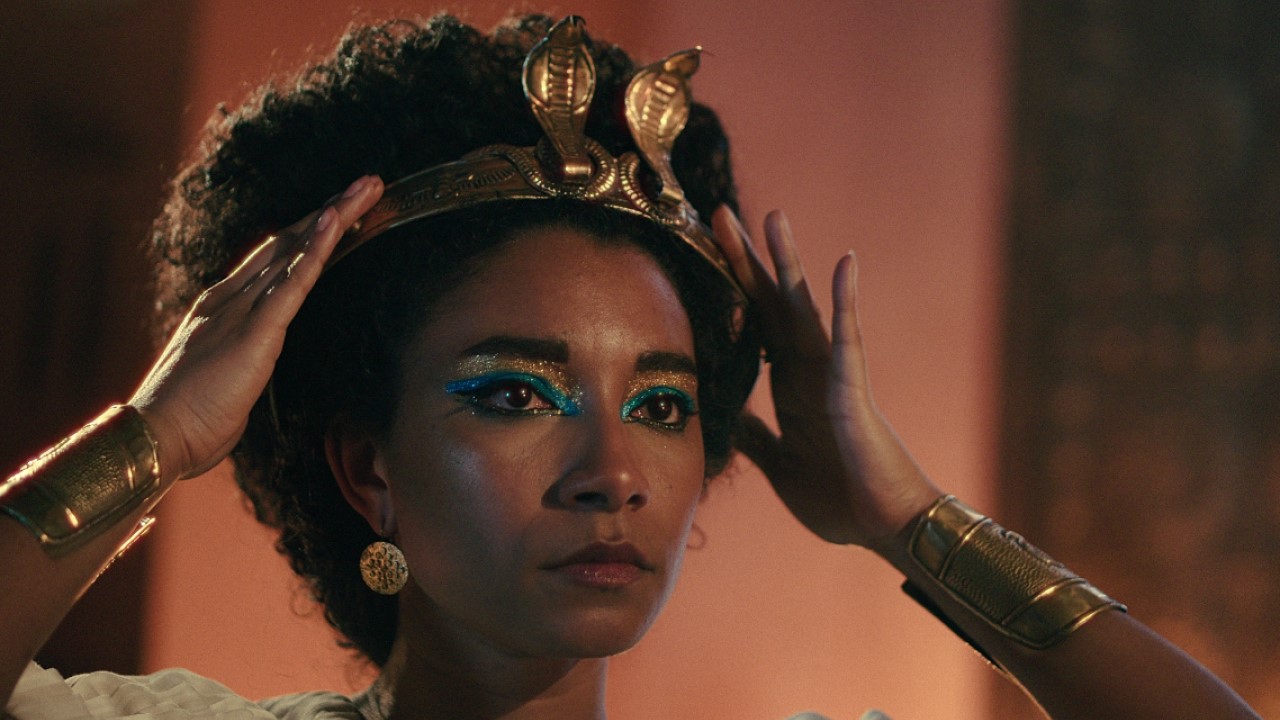
The ancient Egyptian ruler Cleopatra has been depicted in film and on TV dozens of times over the years and in paintings, sculptures, books and other art forms long before that. The fact that her heritage is unknown is a sensitive and hotly debated topic amongst historians, and the upcoming Netflix series Queen Cleopatra has found itself in the middle of controversy in regards to the actress chosen to portray the queen. Following a lawsuit filed against the streaming service and the director speaking out about the choice to cast a Black actress in the role, Egypt’s Council of Antiquities has weighed in with its take.
Queen Cleopatra is a docudrama that will feature re-enactments and expert interviews about Egypt’s last pharaoh, as she fights to protect her throne, family and legacy. However, ahead of the series' premiere to viewers with a Netflix subscription, there’s been backlash against director Tina Gharvari’s casting of Adele James as the title character. Egypt’s Supreme Council of Antiquities, the 160-year-old organization responsible for cultural heritage, has now weighed in, per Deadline, saying its secretary general “confirms” that Cleopatra had light skin and Greek features, thus making Netflix’s portrayal a “falsification” of history. The organization’s Secretary General Mostafa Waziri said in a statement:
The appearance of the heroine is a falsification of Egyptian history and a blatant historical fallacy, especially since the film is classified as a documentary film and not a dramatic work, which requires those in charge of its production to investigate accuracy and rely on historical and scientific facts to ensure that history and civilizations are not falsified.
The council used Queen Cleopatra’s designation as a documentary as its reason for speaking out, and with its declaration that the figure had “light skin and Hellenistic (Greek) features,” the series would therefore be historically inaccurate.
However, director Tina Gharvari previously stated that what Cleopatra looked like can only be theorized. Cleopatra’s father was Macedonian, but her mother could have come from a number of cultures in and around Egypt. While Gharvari admits we don’t know if the queen was Black, “we can be certain she wasn’t white like Elizabeth Taylor,” who gave perhaps the most well-known portrayal of the ruler in the 1963 movie Cleopatra. (Angelina Jolie was being eyed at one point to play the queen, and more recently Gal Gadot faced criticism of her own regarding a potential Cleopatra movie.)
The director said the argument calls for an honest conversation with ourselves about colorism and “internalized white supremacy.” Mostafa Waziri, however, denied that the organization’s concerns were based in racism, saying:
The rejection experienced by the film before it comes out is sparked out of defense of the history of Queen ‘Cleopatra VII’, which is an important and authentic part of the ancient history of Egypt, and far from any ethnic racism, with full respect for African civilizations and for our brothers in the African continent that brings us all together.
The council’s statement comes a week after Mahmoud al-Semary, an attorney in Egypt, filed a lawsuit against Netflix accusing the streamer of “erasing the Egyptian identity.” Queen Cleopatra is set to debut in just over a week, on Wednesday, May 10, and there’s been no indication from Netflix so far that that’s changed. Stay tuned to our 2023 TV schedule for the latest on series premieres.







